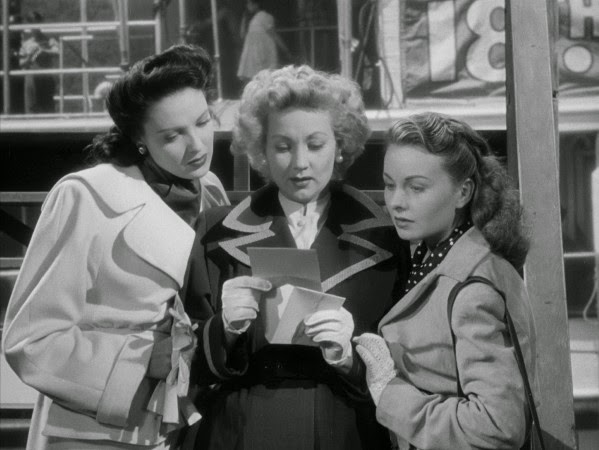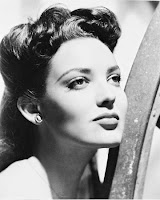 Pickup on South Street (Samuel Fuller, 1953) By the time Samuel Michael Fuller wrote and directed Pickup on South Street for Darryl F. Zanuck* in 1953, he'd already had three tough careers, as an infantryman in WWII, as a street-wise journalist for a New York daily (he was the New York Evening Graphic's crime reporter at the tender age of 17!) and a pulp-fiction novelist and ghost-writer. Fuller knew the seamy side of life, knew how to portray it suggestively to avoid the censors, but still punch it up to make sure audiences picked up on it. Fuller's movies had a crusty vitality that few directors have successfully emulated (although many have tried). That sort of lesson you learn on the street, not in the video store.
Pickup on South Street (Samuel Fuller, 1953) By the time Samuel Michael Fuller wrote and directed Pickup on South Street for Darryl F. Zanuck* in 1953, he'd already had three tough careers, as an infantryman in WWII, as a street-wise journalist for a New York daily (he was the New York Evening Graphic's crime reporter at the tender age of 17!) and a pulp-fiction novelist and ghost-writer. Fuller knew the seamy side of life, knew how to portray it suggestively to avoid the censors, but still punch it up to make sure audiences picked up on it. Fuller's movies had a crusty vitality that few directors have successfully emulated (although many have tried). That sort of lesson you learn on the street, not in the video store.He'd already made five very eclectic pictures for 20th Century Fox starting with I Shot Jesse James, two Korean War films—the low-budgeted The Steel Helmet and Fixed Bayonets!—The Baron of Arizona, and an historical newspaper picture, Park Row. When Darrel Zanuck suggested a trial movie, Fuller pitched him another idea about grifters and spies working against each other in the bowels of New York.
Pickup on South Street has some amazing sequences, starting with the opening gambit: a couple of fed's are tailing a call-girl, Candy (the soon-to-be-Mrs. Howard Hughes, Jean Peters), who's found some temporary legitimacy as a courier for her ex-boyfriend, Joey (Richard Kiley), when who should sidle up to her but a professional pick-pocket named Skip McCoy (Richard Widmark). He gets in close, uses a newspaper as a blind, then deftly violates her purse (no, there is no ambiguity here—Fuller edits it like it's a sexual act, cutting from the purse to a flushed-looking Candy). He intercepts something he doesn't expect—micro-film with government secrets. This Joey-guy seems to be a communist spy.
Of all the people in the world for the safety of United States to depend on! Skip's no hero and has no loyalties to anybody but himself. Pretty soon he's being hounded in his squalid little bait-shack domicile by the city cops, the fed's ("You wavin' the flag at ME?!" he asks, mystified), the moll he buzzed, and the U.S.-based communist cell that Joey's working for. What's a "dipper" to do? The patter is wise and rapid, the love scenes smoldering and intimate, and the fight scenes look like they hurt!
A lot!** (There's a particularly nasty one with Peters and Kiley in which the camera hurriedly rushes back out of the way of the hurling bodies—the best thing about the fights is they look spontaneous and un-choreographed, and quite thuggish). It's a movie to love...and respect.
It's hard to believe that Zanuck would approve this film (and he got some complaints about it from J. Edgar Hoover), but he liked his B-roster rough and down in the dirt, and Fuller wouldn't have it any other way. However, just because his protagonists are all grifters (the cops, however, are all nasty creeps) they're all Good Americans, as opposed to the well-tailored, polite communists, and that's Fuller's punch-line to the whole magilla.
You can practically hear his wheezing cackle.
* Fuller liked to tell the story of why, after making successful B-movies, he decided to sign a contract with Fox and Zanuck over the other studios. He asked the other studio-heads what they did with the profits from their movies. All gave advice on tax shelters. Zanuck was the only one who said, "We make better movies."
** The fight scenes kept the film from receiving a pass from the Production Code, and had to be filmed a few times before the film could be accepted for exhibition. As it is, Peters goes slamming face-first into a book-case at one point, and Widmark socks Kiley over a subway turnstile, and drags him by his ankles down some stairs, his jaw hitting every step along the way. Ouch!


















